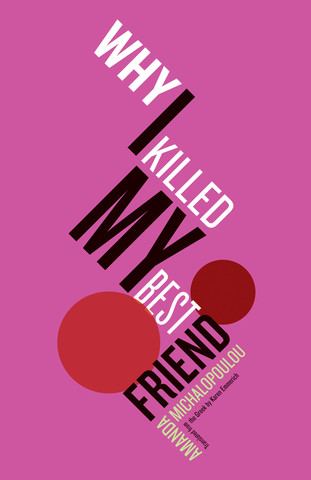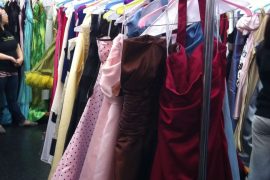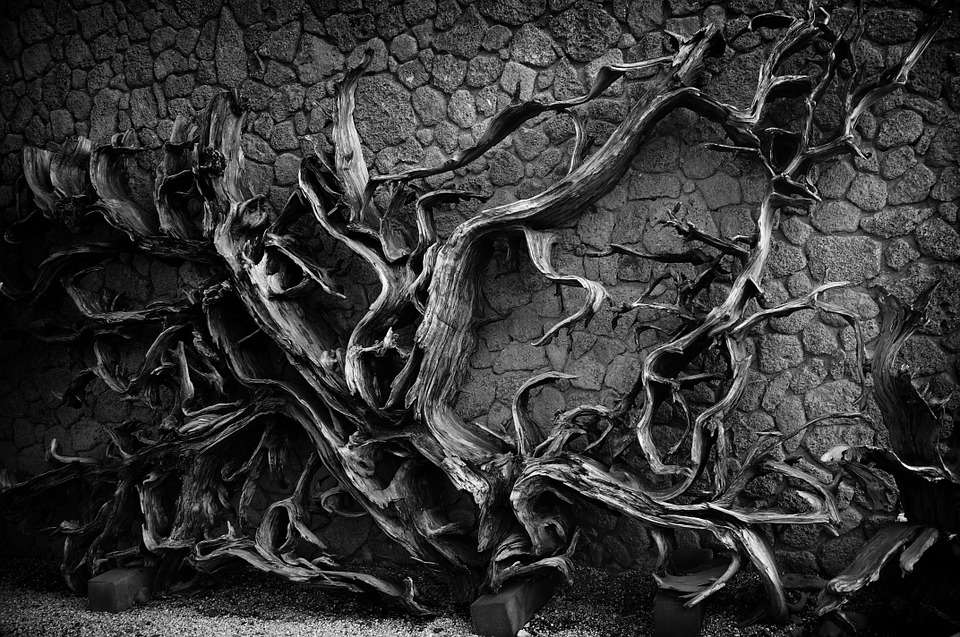Amanda Michalopoulou
Translated from the Greek by Karen Emmerich
Excerpt from Why I Killed My Best Friend
Forthcoming from Open Letter in May 2014
I squeeze my eyes shut and swear I’ll die. It’s another Sunday, we just got back from Nigeria, Mom is making her biftekia, cars are screeching to a stop outside the blue building. I try to hold my breath as if I were swimming underwater at the beach in Tarkwa, only for longer. If I can just die a little, if I can at least make myself turn blue, they’ll bring me back to Nigeria for good. But I can’t: my cheeks burst and I gasp in air through my mouth, my nose, even my ears.
Christmas vacation is over. Tomorrow school starts again. I feel as if I only dreamed the Mercedes at the airport in Lagos; Dad standing and smiling in the doorway of our house in a new pair of beige shorts and socks pulled up to his knees; Gwendolyn’s hugs; hide-and-seek with Unto Punto behind the badminton court; my blue flippers; diving off the dock at Tarkwa; the New Year’s pie we cut on the beach. My piece had the lucky coin.
“I don’t see what’s lucky about it,” I said to Gwendolyn. “They’re still making me go back to Greece.”
“Don’t be ungrateful,” Gwendolyn had replied without lifting her eyes from the iron. “The big iroko tree sprouts from a small seed.”
The coin is as small as a fingernail. It says 1977, and it’s supposed to bring me luck for this whole year. Mom hung it on the gold ID bracelet I wear on my wrist. I take it off and as I’m lying there snuggled in bed, I use it to pick my nose a little, then put it in my mouth and suck on it. I have no idea how it happens: it just slips gently down my throat, like a fresh, warm puff puff. Oh no, what have I done? I swallowed my luck!
So it isn’t strange that the very next day Anna Horn enters my life.
Anna slides into the other seat at my desk in the front row and winks at me. She’s the most beautiful girl I’ve ever seen in my life! An angel—blond, with eyes like the waters of Tarkwa Bay and a tortoiseshell clip holding her bangs back. She has a dimple in her chin and half of one of her eyebrows is totally white, as if it’s been dyed, which makes her look wise and just, exactly how a person should look who’s waiting for a ripe fruit to fall on her head. She’s wearing a marinière, as she tells me with a sort of foreign accent—which is to say, a shirt with blue and white stripes.
“You in the front row, new girl,” Kyria Aphrodite says. I’m glad Anna is here so I’m not the new girl anymore.
“Yes?” Anna answers imperiously.
“Make sure to wear your uniform to school tomorrow.”
“I don’t have a uniform. We haven’t had a chance to go shopping yet.”
“Perhaps you’ve come from Africa, too, like Maria?”
“No, I came from Paris.”
“What am I going to do with all you immigrants?”
“We’re not immigrants, Kyria, we’re dissidents. My father had a scholarship from the Institut Français. My mother had me in Paris so I wouldn’t be a child of the dictatorship. Now that Greece is free again, we came home. Well, not my father. My mother and I. My father is so busy he doesn’t even have time to sleep. He has a huge office with over a thousand books, all in French. And he’s read them all twice!”
The words come rushing out in a torrent. Kyria Aphrodite doesn’t dare interrupt. You could hear a pin drop in the classroom. Anna is a human bee buzzing around, bringing back stories like pollen: about how beautiful the gardens in Paris are, about eating breakfast on Sundays at Café de Flore, or how kind and funny Melina Merkouri is in real life, how you pronounce the French r as if it’s coming from the inside, from a well in your chest. During recess all the kids flock to her. But Anna chooses me.
“First, because you’re my deskmate, and second, because you came from somewhere else, too. Were you guys dissidents in Africa?”
“Kind of,” I murmur as we run hand in hand through the schoolyard. Dissidents resist, and resistance is the opposite of dictatorship. Dictators are bad guys, so dissidents must be good guys, and we’re with the good guys, for sure. I holler Apostolos’s slogan in a sing-song—“Give the junta to the peeeeople!”—and Anna hugs me enthusiastically. We play a skipping game where you sing this song with nonsense words, only instead of “one franc a violet” we chant our new slogan. When we get tired we sit down on the steps in front of our classroom and Anna tears her sandwich in half so we can share it. I’m not sure I really want it because it smells like rotten cheese but Anna insists. “Eat! Comrades share everything!” Why on earth did I ever want to be friends with Angeliki, the smushed turd, when there are girls like Anna in the world? All of a sudden Greece feels wonderful, African.
The big iroko tree sprouts from a small seed.
Anna isn’t speaking to me. She wants to divide our desk down the middle. I’m not supposed to let even my elbow creep over onto her half.
“But what did I do? What?”
“You lied to me. There are no dissidents in Africa. My mother says you’re racists who exploit black people.”
That’s going too far! I blurt out all the proverbs Gwendolyn taught me and tell Anna about the games I used to play with Unto Punto. Anna just puts her hands over her ears and sings, “I’m not listening, I’m not listening, I can’t hear you!” My eyes fill with tears.
“Please, Anna . . .”
“It’s over, we’re through. I won’t be friends with a racist.”
It’s recess and we’ve stayed behind in the classroom to talk, but now Anna storms off in a huff and goes out to play with Angeliki, her new friend. I cry for a while, then tear a sheet out of my penmanship notebook. At the top of the page I write a line by Dionysios Solomos, our national poet: Freedom requires daring and grace. Underneath that, in fancy letters, taking care to stay inside the ruled lines, I write: Dear Mrs. Anna’s Mother, We aren’t racists!!! I love Gwendolyn even more than my own life. (And Gwendolyn is very black.) I’m an African. Love, Maria. In the margin I draw two black tears, or dark blue, anyhow, with my pen. At the bottom of the page I sketch the man-made jetty in the harbor in Tarkwa Bay. I draw lots of tiny black people, too, like ants, stretched out in the sun under the palm trees. The sun is smiling, but its teeth are black. Its rays are squiggly, rastafarian. I fold the page in fours and slip it into Anna’s primer. She’ll find it when she gets home, and I’m sure she’ll be mad, but I bet she’ll show it to her mother, too.
The rest of the day is hell. Angeliki keeps hissing “teapot, teapot, teapot” behind my back. Kyria Aphrodite doesn’t hear, but she catches me sticking my tongue out and sends me to the blackboard until the bell rings. I’m facing the world map again, but this time I don’t even look at Africa. I keep my eyes trained on a country in Europe that’s exactly the same shape as Nigeria—a country called France.
“My mom says you should come to our house for lunch, if your mother will let you. Do you want to come?”
Anna is looking at Kyria Aphrodite, but she’s talking to me.
“So you believe me that I’m not a racist?”
“Do you want to or not?”
“Okay!”
“Only my mother is a ballet dancer and we don’t eat things with sauces.”
“I don’t like sauces.”
During recess we stick together and ignore Angeliki. We share Anna’s sandwich—the rotten cheese tastes better today—and swear to be friends forever. I’m so happy my nose starts to bleed. I think I’m going to faint, because I can’t stand the sight of blood. But I have to seem strong. Anna uses some of the blood to write our names in her notebook as if it were a single name, Anna-Maria.
“It’s an oath, you know, now that it’s written in blood,” she says.
We go back to our anti-junta skipping game. I’m the happiest girl in all of Greece, and in all of Africa, too! When school is out we walk to her house holding hands, our palms slippery with sweat.
“How far is your house, anyway?”
“I’ll tell you a secret. Promise not to tell? We lied and said I live where the bakery is, the one across the street from school. I actually live in Plaka. We gave a fake address because our school is experimental and I ab-so-lute-ly had to go there. See?”
“If our school is so good, I wonder what the bad ones are like. You mean there are worse teachers than Kyria Aphrodite?”
Anna laughs with her whole face: with her eyes, her cheeks, the dimple in her chin.
“You’re so beautiful!” I tell her.
“What matters most is inner beauty,” Anna replies. She must’ve heard it somewhere, it’s the kind of thing grown-ups say. But since it’s Anna saying it now, I learn it by heart.
Amanda Michalopoulou is the author of six novels, three short story collections, and a successful series of children’s books. One of Greece’s leading contemporary writers, Michalopoulou has won the country’s highest literary awards, including the Revmata Prize, the Diavazo Award, and the Prize of Athens Academy. Her story collection, I’d Like, was longlisted for the Best Translated Book Award.
Karen Emmerich is a translator of Modern Greek poetry and prose. Her recent translations include volumes by Yannis Ritsos, Margarita Karapanou, Ersi Sotiropoulos, and Miltos Sachtouris. She has a Ph.D. in Comparative Literature from Columbia University and is on the faculty of the University of Oregon.




